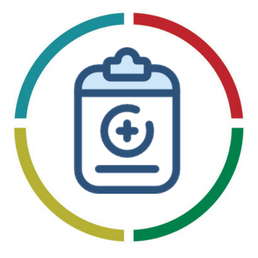 Study title
Study title
A study to improve the quality of out of hours palliative care services for end of life patients
Principal / Lead Investigator
Dr Huw Williams, Cardiff University
Co-Investigators
- Dr Andrew Carson-Stevens, PRIME, Cardiff University
- Professor Joyce Kenkre, PRIME, University of South Wales
- Professor Sir Liam Donaldson, Imperial
Type of study
Mixed methods (scoping review of literature and quality improvement methods)
Study sponsor
Aneurin Bevan University Health Board
Summary
The study will form a Palliative Care Quality Improvement (PCQI) team to improve OOH care for palliative patients at Aneurin Bevan University Health Board (ABUHB). The Fellow will embedded within the QI team (a “researcher in residence”) to: undertake an analysis of remaining reports to characterise priority areas for improvement; review the literature to identify existing interventions / initiatives for each priority; and take these finding to OOH stakeholder to discuss the feasibility of each option (and encourage sharing of new change ideas). The PCQI team will utilise these findings to inform and lead the project. The Fellow will observe and interview the QI team /OOH staff to determine how changes work in different contexts, and will regularly feedback learning to the team.
Public / patient involvement
Mr Anthony Chuter, an experienced patient advocate and has experience of working with the PISA group on our existing work and outputs. He was involved in the development of the fellowship application and will be a key partner during the project. The Aneurin Bevan Continuous improvement team is involved in identifying patient partners who will be involved in the stakeholder events.
A stakeholder event is being convened in the afternoon of 5th October 2017, Christchurch Centre, Malpas Rd, Newport. The groups will involve a mix of participants from different professional backgrounds as well as patients and relatives to gain as many viewpoints as possible. If you are interested in attending, please contact Dr Huw Williams at williamshm11@cardiff.ac.uk
How could this research potentially benefit patients?
It is acknowledged that patients receiving care at the end of their lives can receive less than ideal care from general practice. Unfortunately, research is lacking around how GP-led services can be redesigned to be safer for these patients. The expected improvements based on emerging lessons from analysis so far – will be more timely and effective symptom management, better access to OOH services for patients receiving end of life care, better awareness of patient’s preferences and treatment goals amongst OOH providers.
Does the study involve a methodological innovation?
The use of insights from national level patient safety incident reports to inform and facilitate local level improvement initiatives is a new one – especially in primary care.
Funder
RCGP Scientific Foundation Board
Total grant value
£ 39,900
Grant income to Wales
£ 39,900
Start date
01/01/2017
End date
20/12/2018
Further information
News: Out-of-hours study awarded RCGP Marie Curie Palliative Care Research Fellowship, RCGP News, 13 December 2016.
Outputs generated (Reports / Publications / Impact)
Publication: Williams H, Donaldson SL, Noble S, Hibbert P, Watson R, Kenkre J, Edwards A, Carson-Stevens A. (2018). Quality improvement priorities for safer out-of-hours palliative care: Lessons from a mixed-methods analysis of a national incident-reporting database. Palliative Medicine. https://doi.org/10.1177/0269216318817692
Podcast by Huw Williams to support the above publication: 'Quality improvement priorities for safer out-of-hours palliative care: Lessons from a mixed-methods analysis of a national incident-reporting database'
Conference oral abstract: Williams H, Nobel S, Kenkre J, Edwards A, Hibbert P, Donaldson L, Carson-Stevens A. Sub-optimal care for patients in the out of hours primary care setting at the end of life: a mixed methods study. Supportive and Palliative Care 7(3):A347-A348 · September 2017. DOI: 10.1136/bmjspcare-2017-001407.2
Conference oral abstract:Naughton J, Williams H, Gleeson A. 2 Rekindling primary carers’ relationship with advance care planning: a quality improvement project. BMJ Supportive & Palliative Care 2019;9:A1.

